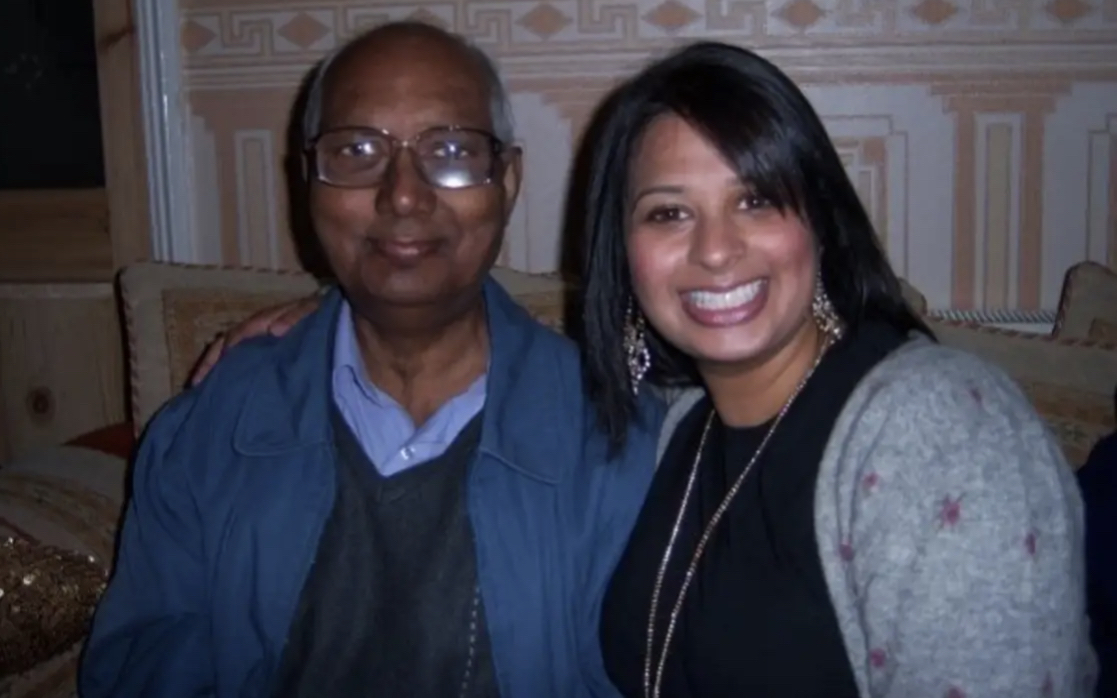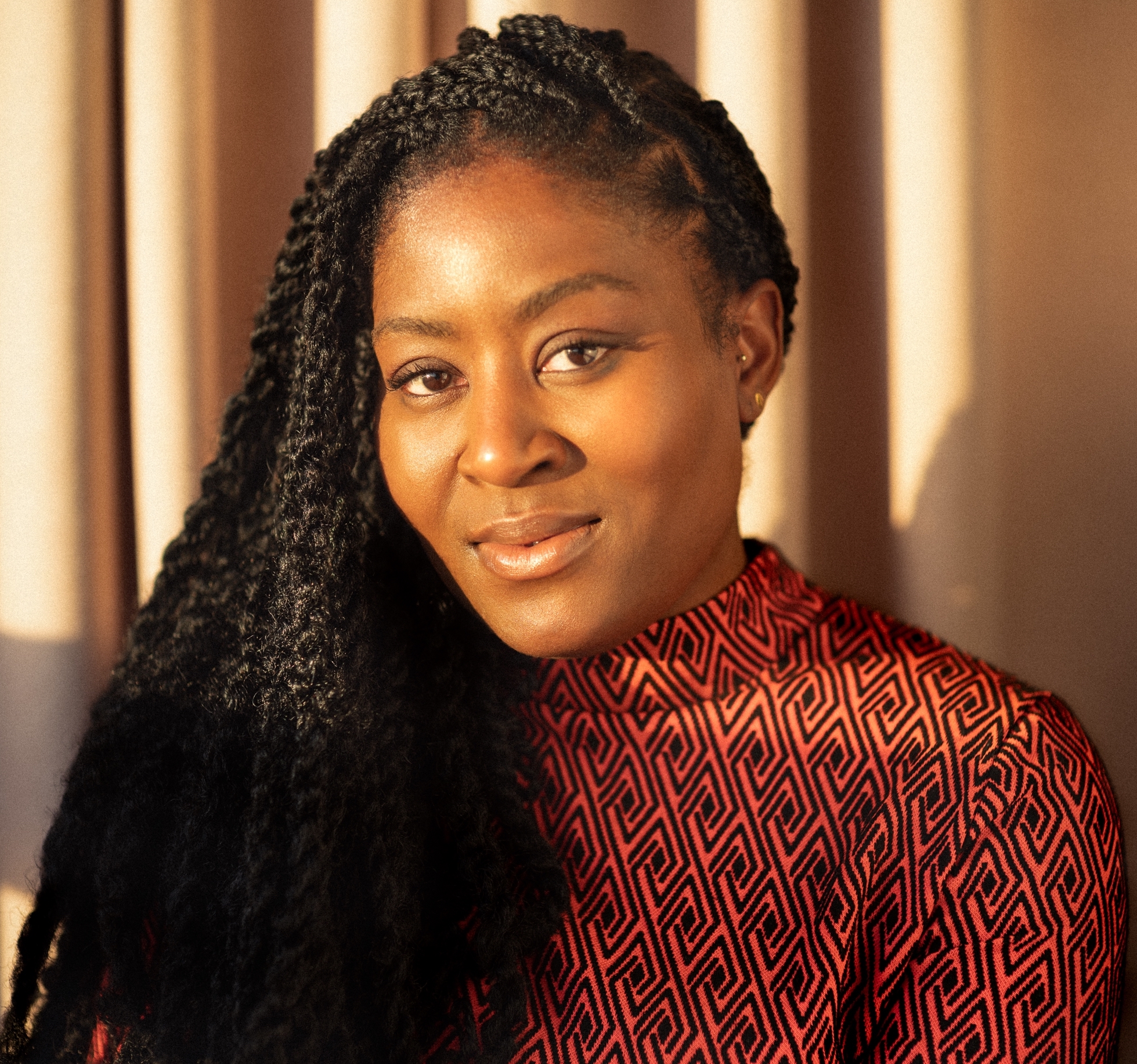“Dementia is a white person’s illness”: Inequities in diagnosis abandon elderly people of colour
Racial disparities in dementia treatment are killing Black and Asian people who die earlier as symptoms are missed and diagnosis comes too late.
“The diagnosis process for my granddad felt like a nightmare,” Kiran Sahota, a historian who lives in Birmingham tells The Lead. “It took such a long time to even get to that point. And the assessment itself just didn’t work.
“The doctor’s questions were about British landmarks and British Prime Ministers. My granddad only spoke Punjabi, he was also illiterate. He wouldn’t have been able to do that assessment even without dementia. I could tell the doctor really didn’t know what to do with him.”
Getting to that point had already taken many months. Kiran’s late granddad had complicated health issues – including schizophrenia and a history of strokes, both of which have a higher incidence in people of colour – that made his dementia symptoms harder to spot. Then there was the agonisingly long wait for an appointment.
Feeling desperate, Kiran proposed her own idea for an assessment, suggesting the consultant use picture cards – flipping them over and moving them around – to assess her granddad’s memory. It was Kiran’s test that ultimately led to a diagnosis, meaning the process could finally move forward.
“I’m not a consultant. I’m not a doctor. Why was it on me to come up with a solution?” Kiran asks. “That responsibility should not fall to carers and family members. There needs to be better education and better tools to overcome language barriers like this.”
“I was so angry that I had to come up with the solution when I was also dying inside, and trying to deal with what’s happening to my granddad and the fact that I could lose him.”
Black and brown communities are at greater risk of developing vascular or early-onset dementia than white people. Black and South Asian people with dementia also die younger and sooner than their white counterparts, with a 2022 study revealing South Asian people die 2.97 years younger and Black people 2.66 years younger than white people with the same diagnosis. Increased vascular risk factors for dementia, like cardiovascular disease, hypertension and diabetes, are more common in people with Asian and African-Caribbean heritage.
Charities and campaigners have demanded action from the government, with calls for ministers to make dementia prevention a key priority with a focus on addressing the socioeconomic factors that are linked to disparities in diagnosis and the likelihood of developing the illness. The problem is so stark that inequalities in dementia services is set to be debated in parliament next week (Thursday 16th May), led by Debbie Abrahams MP.
“We do not know if earlier death after dementia diagnosis is because it is picked up at a later stage in minority ethnic groups … if underlying risk factors in these groups contribute to worse overall health, or if there is a difference in post-diagnostic support,” the authors of the 2022 study said of their findings. As with many of the persistent racial inequalities that impact health outcomes, the truth is likely a combination of all of the above.
Failure of communication
As a starting point, Kiran’s testimony highlights the complex and potentially dangerous implications of language barriers in a healthcare system. Not speaking the language is not only an irritating obstacle to booking appointments and speaking to doctors, but the inability to effectively communicate with patients also impacts the speed of diagnosis and the quality of care that is given as a result.
“In the NHS, we use Western instruments to diagnose dementia,” says Dr JS Bamrah, a consultant psychiatrist at North Manchester General Hospital. We tend to use the Mini Mental State Examination or the Addenbrooke Cambridge scale, and both tests are anglicised and heavily focused on language.”
“It’s all too easy for health institutions to claim minoritised communities are ‘hard to reach’, rather than acknowledge an institutional lack of cultural accessibility.”
Dr Bamrah, who is of Trinidadian origin, speaks a number of languages, but this is not common among his colleagues. Interpreters are available for people who don’t speak English, yet this system is often unreliable. Good interpretation is more than the literal translation of words; it requires an engagement with the individual’s perception of their situation.
“Often there will be major issues when an interpreter speaks the language but doesn’t quite understand the specific dialect. They can be hard to get hold of too. This happened to me two weeks ago. My interpreter just never turned up. I don't know why.”
Research by the Alzheimer’s Society found that 68% of their service users from an ethnic minority background reported that difficulties with language and communication were a significant barrier to diagnosis. In another recent survey of memory assessment services in England and Wales, 45% of respondents said the most significant obstacle to diagnosing ethnic minority patients was a language barrier.

Kiran with her grandfather.
Addressing healthcare language barriers is crucial to seeing more timely dementia diagnoses. Having an early diagnosis facilitates access to crucial care and support that enables people to live well with the condition for as long as possible.
“I'd like to see people come earlier so we can treat them effectively,” Dr Bamrah explains. “Often dementia is mixed with other medical causes, which we find incidentally during the screening process. By then, there is often completely irreversible damage to the brain. The brain is a very fragile organ. It is hard to recover when you're in that state of advanced dementia.”
‘A white people’s illness’
Certain perceptions among different cultures – specifically to do with health, caregiving or dementia itself – can make families less willing to seek support when they notice symptoms. There is still stigma and taboo that makes this illness difficult to talk about, and in some communities, there is the misunderstanding that dementia does not affect people like them. Some South Asian languages have no word to describe the condition.
“It often felt like dementia is a white people’s illness,” says Kiran. “That’s all we ever saw, on TV and in the media. All the major soaps storylines that tackled dementia didn’t include people of colour. Major health campaigns targeted at our community always seemed to focus on diabetes and heart conditions."
Because dementia is not something that is frequently spoken about in Kiran’s community, she struggled to understand that it was an illness that impacts all sections of society. It was only as she got older and went through it herself that she realised incidents of dementia in the local area were just being hidden.
“When we finally got to see a consultant, I realised he wasn’t used to seeing people of colour with dementia in this area because people aren’t going to the doctor,” she adds. “He wasn’t equipped to deal with it.”
And yet, community-related issues are not the only reasons for inequality of diagnosis. It’s all too easy for health institutions to claim minoritised communities are ‘hard to reach’, or ‘prefer to look after their own’, rather than acknowledge an institutional lack of cultural accessibility that deters people from reaching out to diagnostic services.
According to 2020 research by the Alzheimer’s Society, there is a feeling among ethnic minority families that health services would not understand them as individuals. A lack of culturally appropriate tools means language and cultural needs are not met, and people’s life histories and circumstances are not acknowledged.
Addressing these cultural needs can seem unimportant, but they are crucial in helping people with dementia to feel heard, understood and valued, factors that significantly contribute to positive health outcomes.
“Dementia is a silent epidemic, and, despite the growing numbers, policy guidance on Black and minority ethnic older people has yet to find its way into practice.”
When Li* recently looked for a care home for her mother – who has dementia and doesn’t speak any English – she struggled to find a place where other residents or members of staff could converse with her in her native language. After seeing how her mother’s condition declined during the isolation of COVID-19 lockdowns, Li knew she couldn’t risk putting her somewhere without a person to speak to.
“In the homes I have been to visit, everybody there eats English food. My mother can eat English food for maybe one or two days, but not everyday. She needs ramen, she needs noodles, she needs Chinese food to feel at home, to feel comfortable. But there are no options.”
A wider crisis of care
People with dementia frequently experience longer hospital stays than average and can be delayed leaving wards due to a shortage of care in the community. A report in January revealed the scale of the problem, after finding that a quarter of all NHS beds are occupied by people with dementia. And Skills for Care estimated that in 2022/23 an average of 9.9% - 152,000 - roles in adult social care in England went unfilled, with workers leaving the sector due to poor pay and conditions. This chronic lack of staff leaves vulnerable people with nowhere to turn, and longer stays in hospital exacerbate risks for people with dementia.
But the care crisis runs deeper than staff shortages in the sector. For ethnic minority communities, a lack of culturally competent care can lead to a range of significant problems.
Roxanne Viera-Moreno is a lead Admiral Nurse at Barking, Redbridge and Havering University Hospitals NHS Trust. Specially qualified nurses like Roxanne understand the unique challenges of a dementia diagnosis, and how it impacts the individual and their family. For Roxanne, who is originally from Trinidad and Tobago, quality dementia care must always be grounded in cultural understanding, clear communication and extensive education.
“Dementia is complicated because it doesn’t fit neatly into any of the social care services - and as a result, people with dementia fall through the gaps,” Roxanne tells The Lead.
“For someone who has cancer, for example, the trajectory tends to be quite straightforward - with a short prognosis, you deteriorate and then you die. But with dementia, the picture is less linear, and often people won’t qualify for continued care even when they need it.”
Admiral Nurses are dementia specialist nurses that are supported and developed by Dementia UK. A big part of Viera-Moreno’s job is helping plan and facilitate complex discharges for people with dementia after a hospital visit. She says what’s worrying is that people are less likely to return home after being admitted because they “become deskilled” while in hospital.
On her wards, the Admiral Nurse sees how vital it is for carers and professionals to have a nuanced understanding of the ways dementia can present within different people. Without this, issues with pain may not be properly assessed, or patients may be forced to eat even when they are experiencing problems with swallowing.
“One gentleman that I looked after, every time he was in pain he would smile. He was in distress whenever he smiled. So I had to make sure all the staff were aware of that behaviour. It shows just how important it is to have the correct information written down, and to make sure things are handed over properly.”
Trust is a recurring issue. Due to historic failures and lived experiences of discrimination within healthcare systems, some people from minority communities struggle to put their trust in carers and healthcare professionals. This creates a gap in care that family members are often left struggling to fill.
“I’ve seen people hold out from bringing their loved ones into hospital because they're scared,” Viero-Moreno explains. “There is a distinct lack of community support for people who are caring for their loved ones at home – and this puts people at risk. We need more community-based support, we need to engage with faith leaders and go to community centres. It’s about going to people who have already built that trust and starting a dialogue.”
The need for targeted interventions
Of the almost one million people living with dementia in the UK, around 25,000 are from a Black or ethnic minority background, a number which is predicted to double to 50,000 by 2026, and reach 172,000 by 2051. This is a seven-fold increase in 40 years compared to the two-fold increase in the majority population. Researchers believe this is due to immigrant populations who arrived in the UK in the 1950s-1970s getting older, but a lack of awareness and lack of timely diagnosis also play a part.
Dementia is a silent epidemic, and, despite the growing numbers, policy guidance on Black and minority ethnic older people has yet to find its way into practice.
For Dr Bamrah, the growing numbers in ethnic minority communities are due to a failure to prioritise inequalities, which is something he has been witnessing for years across the NHS and all UK healthcare settings: “We clinicians have known this is happening for decades, but there hasn’t been enough coverage or discussion on these deep-rooted problems.
“Historically, the NHS was founded on the basis of equality and equity, but what we are seeing here is issues like dementia not being treated as a priority when it affects a minority ethnic community. This is what is called structural discrimination.”
Culturally specific, targeted interventions are needed. Solutions should include services that work with community groups on awareness, the development of culturally appropriate cognitive and memory tools, as well as post-diagnostic services and diversity training for clinicians and carers. Targeted interventions should be directed at both service providers and affected communities.
While cuts in social care and systemic inequalities play a significant role in the persistent disparities in dementia outcomes and care, approaches to dementia diagnosis will only improve with a joined-up, culturally sensitive approach. Dementia campaigners advocate for ‘Integrated Care Systems’ which would bring together elements of different organisations, unifying formal NHS diagnostic services with voluntary organisations supporting minoritised groups in their own communities.
“One thing that made a real change was when we finally managed to get a nurse who was Punjabi speaking, my granddad absolutely loved her,” Kiran reflects. “As long as it took to get that care, and even though we only had a nurse for short period before his death, she was amazing. She spoke Punjabi and treated him like a person.
“After what we went through, it feels like care is catered towards a certain demographic - to me it seemed there was nothing in place for people with dementia where English is not their first language. This needs to change. To do this, we need to bring in consultants, but also board members in the NHS and government bodies. And, crucially, they need to consult with people who have actually lived through this.”
Dementia UK is committed to ensuring all families with dementia have equitable access to the care they need - offering free specialist support through its national helpline and network of Admiral Nurses, as well as campaigning for changes to dementia care and funding.
If you need advice or support on living with dementia, contact Dementia UK’s Admiral Nurse Dementia Helpline on 0800 888 6678 or email: [email protected].
The Lead is now on Substack.
Become a Member, and get our most groundbreaking content first. Become a Founder, and join the newsroom’s internal conversation - meet the writers, the editors and more.





